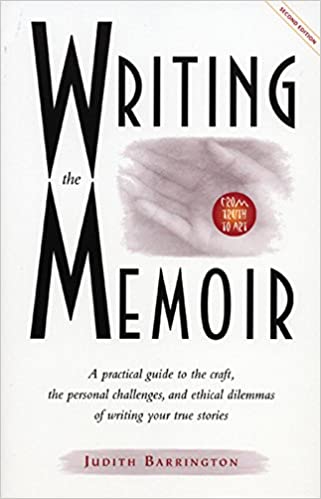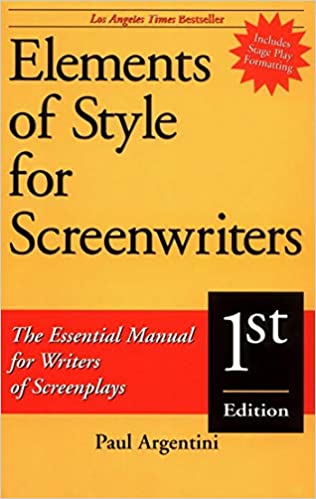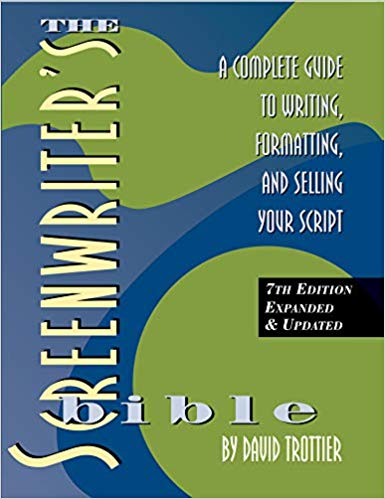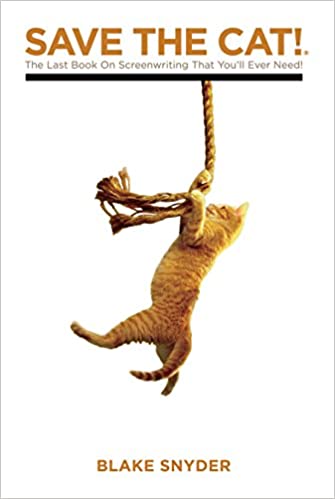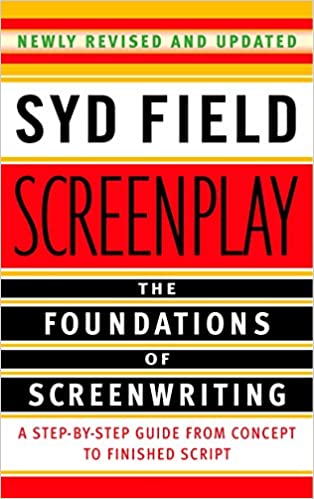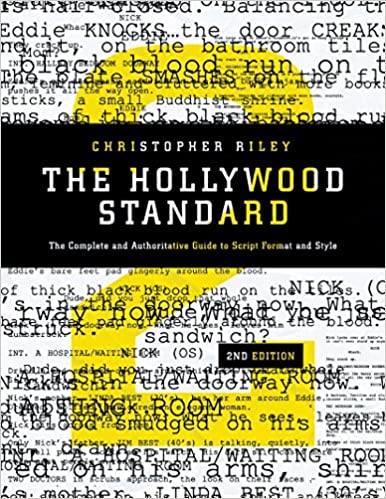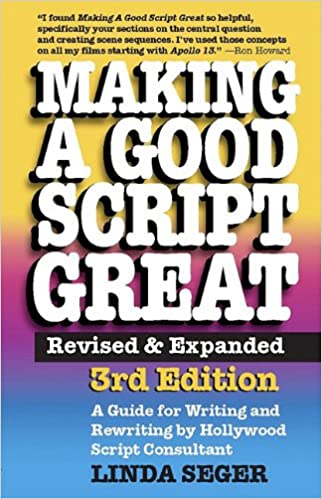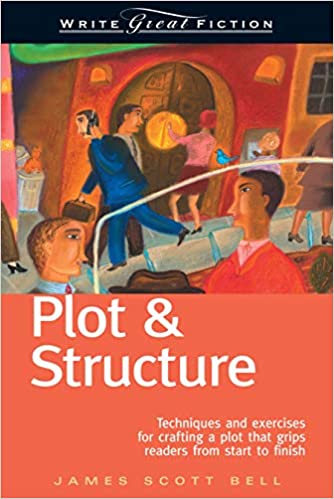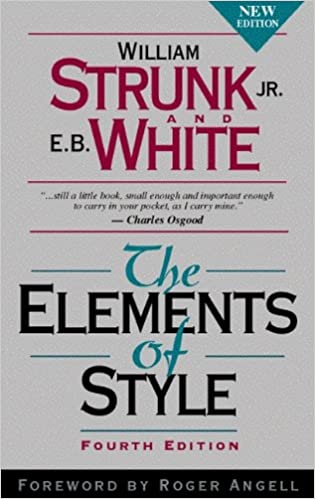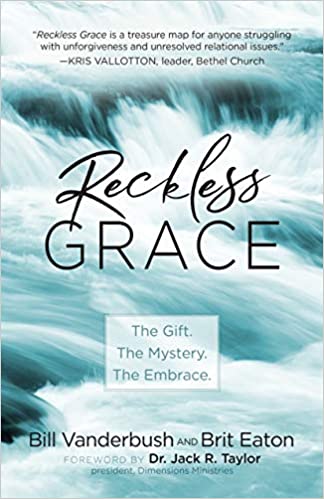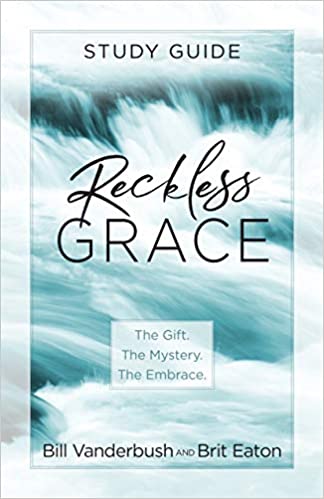Writing the Memoir: From Truth to Art
Since Writing the Memoir came out in early 1997 it has sold roughly 80,000 copies and is consistently praised as "the best book on memoir out there." It is thought-provoking, explanatory, and practical: each chapter ends with writing exercises. It covers everything from questions of truth and ethics to questions of craft and the crucial retrospective voice. An appendix provides information on legal issues.
More info →Elements of Style for Screenwriters
In the grand tradition of Strunk and White's Elements of Style, Paul Argentini presents an essential reference masterpiece in screenwriting. He provides clear and concise principles of screenplay formatting structure, as well as stylistic advice. Argentini explains how to design and format manuscripts to impress any film school professor, story editor, agent, producer or studio executive. No book in shorter space, with fewer words, will help screenwriters more than this persistent volume.
More info →The Screenwriter’s Bible
The Screenwriter s Bible's 7th edition marks the 25th anniversary of one of the most popular, authoritative, and useful books on screenwriting. A standard by which other screenwriting books are measured, it has sold over 340,000 copies in its 25-year life. Always up-to-date and reliable, it contains everything that both the budding and working screenwriter need under one cover five books in one!
More info →Save The Cat!
Here’s what started the phenomenon: the best seller, for over 15 years, that’s been used by screenwriters around the world! Blake Snyder tells all in this fast, funny and candid look inside the movie business. “Save the Cat” is just one of many ironclad rules for making your ideas more marketable and your script more satisfying, including: The four elements of every winning logline The seven immutable laws of screenplay physics The 10 genres that every movie ever made can be categorized by ― and why they’re important to your script Why your Hero must serve your Idea Mastering the 15 Beats Creating the “Perfect Beast” by using The Board to map 40 scenes with conflict and emotional change How to get back on track with proven rules for script repair This ultimate insider’s guide reveals the secrets that none dare admit, told by a showbiz veteran who’s proven that you can sell your script if you can save the cat.
More info →Screenplay: The Foundations of Screenwriting
Syd Field's books on the essential structure of emotionally satisfying screenplays have ignited lucrative careers in film and television since 1979. In this revised edition of his premiere guide, the underpinnings of successful onscreen narratives are revealed in clear and encouraging language that will remain wise and practical as long as audiences watch stories unfold visually—from hand-held devices to IMAX to virtual reality . . . and whatever comes next.
More info →Story: Substance, Structure, Style and the Principles of Screenwriting
Robert McKee's screenwriting workshops have earned him an international reputation for inspiring novices, refining works in progress and putting major screenwriting careers back on track. Quincy Jones, Diane Keaton, Gloria Steinem, Julia Roberts, John Cleese and David Bowie are just a few of his celebrity alumni. Writers, producers, development executives and agents all flock to his lecture series, praising it as a mesmerizing and intense learning experience.
More info →The Hollywood Standard
The Hollywood Standard describes in clear, vivid prose and hundreds of examples how to format every element of a screenplay or television script. A reference for everyone who writes for the screen, from the novice to the veteran, this is the dictionary of script format, with instructions for formatting everything from the simplest master scene heading to the most complex and challenging musical underwater dream sequence. This new edition includes a quick start guide, plus new chapters on avoiding a dozen deadly formatting mistakes, clarifying the difference between a spec script and production script, and mastering the vital art of proofreading. For the first time, readers will find instructions for formatting instant messages, text messages, email exchanges and caller ID.
More info →Making a Good Script Great
Making a good script great is more than just a matter of putting a good idea on paper. It requires the working and reworking of that idea. This book takes you through the whole screenwriting process - from initial concept through final rewrite - providing specific methods that will help you craft tighter, stronger, and more saleable scripts. While retaining the invaluable insights that placed its first two editions among the all - time most popular screenwriting books, this expanded, revised, and updated third edition adds rich and important new material on dialogue, cinematic images, and point of view, as well as an interview with screenwriter Paul Haggis. If you are writing your first script, this book will help develop your skills for telling a compelling and dramatic story. If you are a veteran screenwriter, it will help you articulate the skills you know intuitively. And if you are currently stuck on a rewrite, this book will help you analysis and solve your script's problems and get it back on track.
More info →Plot & Structure: Techniques and Exercises
How does plot influence story structure?
What's the difference between plotting for commercial and literary fiction?
How do you revise a plot or structure that's gone off course?
More info →The Elements of Style
You know the authors' names. You recognize the title. You've probably used this book yourself. This is The Elements of Style, the classic style manual, now in a fourth edition. A new Foreword by Roger Angell reminds readers that the advice of Strunk & White is as valuable today as when it was first offered. This book's unique tone, wit and charm have conveyed the principles of English style to millions of readers. Use the fourth edition of "the little book" to make a big impact with writing.
More info →Reckless Grace: The Gift. The Mystery. The Embrace.
We all know we need grace and forgiveness, but why is it so difficult to extend them to ourselves and others?
Bill Vanderbush and Brit Eaton challenge our understanding of forgiveness with powerful biblical evidence and show us how to step into the fullness of grace, bringing reconciliation and restoration to our relationships.
God isn't reckless, but the way he extends grace defies all reason. We can learn to freely give what we have been freely gifted.
More info →

